SUMMARY
This is AI generated summarization, which may have errors. For context, always refer to the full article.
- Lanto says no
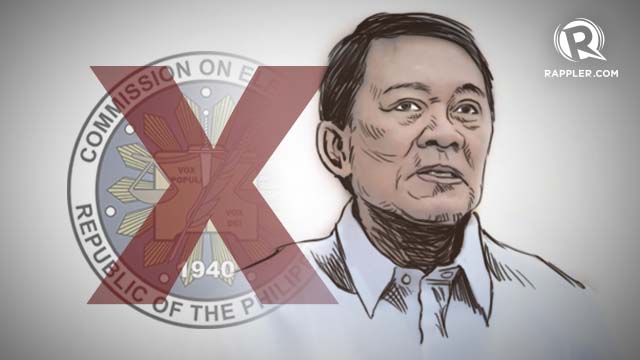
Former Lanao del Norte Rep Macabangkit Lanto declines his appointment to the Commission on Elections (Comelec). Hounded by controversy, Lanto says he did it “with deep regret.” A former ambassador, Lanto was unseated as Lanao del Norte’s second district representative in 1994 due to alleged poll fraud. The House of Representatives Electoral Tribunal (HRET) ruled that he cheated to win the elections. Team PNoy campaign manager Sen. Franklin Drilon endorsed him as officer-in-charge of the Autonomous Region in Muslim Mindanao in 2011. Lanto admitted last week that it was also Drilon who recommended him for the Comelec post. President Benigno Aquino III reportedly got upset over the committee’s failure to seriously consider the controversies surrounding Lanto.
Read more on Rappler - Tagle conquers Facebook as D-day announced March 12
As cardinals assemble in the Vatican’s Sistine Chapel for the start of the conclave on Tuesday, March 12, an Italian start-up, Decisyon, says Manila Cardinal Luis Antonio Tagle generated 52% of social media content from among papal contenders on Facebook and Twitter. He is followed by New York Archbishop Cardinal Timothy Dolan, who has over 24,000 fans on Facebook and 90,700 followers on Twitter; and Cardinal Gianfranco Ravasi, president of the Pontifical Council for Culture, who has over 42,000 followers on Twitter. But popularity on social networks will have little bearing as the centuries-old ritual begins.All the cardinals swear a solemn oath of secrecy and hold a first vote, where the challenge will be to find a 266th pope able to deal with the many challenges assailing the Church. The church faces growing secularism in the West and rising Islamic radicalism. Internally, it’s Roman Curia is hounded by infighting over sexual abuse by pedophile priests and cover-ups known as “Vatileaks”. The 115 “cardinal electors” – cardinals below the age limit of 80 – are unlikely to veer far from the conservative views of Benedict XVI and his predecessor John Paul II since they were all appointed by the two popes. Seasoned Vatican observers admit that the field is still wide open, though the most oft-cited names are three cardinals in the same mould as Benedict: Angelo Scola, the archbishop of Milan, Odilo Scherer, the archbishop of Sao Paulo, and Marc Ouellet, prefect of the Congregation of Bishops. A two-thirds majority – 77 votes or more – is needed to elect a pope. The smoke from a chimney above the Sistine Chapel turns to white if the papal election has taken place and the cardinal has accepted his nomination. The new pope retires to the “Room of Tears” next to the chapel before emerging onto a balcony over St Peter’s Square to cheering crowds and the cry of “Habemus Papam!” (“We Have a Pope!”)
Read more on Rappler here and here - Pistorius thinking of suicide?
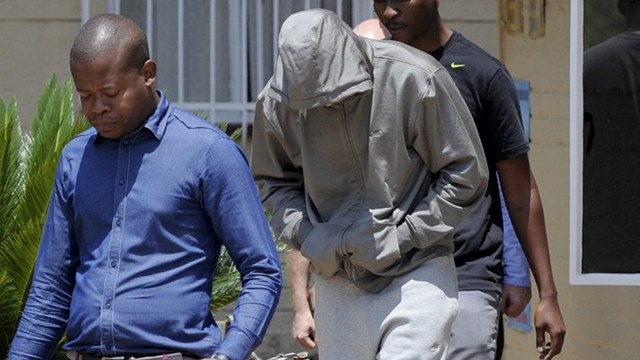
Is Paralympics star Oscar Pistorius thinking of suicide?
A close friend of the fallen sports hero says the six-time Paralympics winner is “on the verge of suicide” as he fights a charge of premeditated murder. Pistorius is accused of murdering his girlfriend Reeva Steenkamp on Valentine’s Day. He claims he shot her through a bathroom door thinking she was an intruder. Speaking in the upcoming BBC3 documentary “Oscar Pistorius: What Really Happened?”, close friend Mike Azzie says Pistorius was “a broken man” since the incident. Azzie adds his state of mind has worsened since he had to sell his racehorses for his spiralling legal fees. Pistorius, who is out on bail, regularly talks about Steenkamp as he awaits his next court appearance on June 4. “He just always seems to mention Reeva and to ask us to pray for her and her family,” Azzie said.
Read more on Rappler - 900 pigs dumped in water source: Xinhua

900 dead pigs were found in the main river that provides drinking water for Shanghai. The Official Xinhua News Agency reports the carcasses were found and retrieved at Songjiang in the upper reaches of the Huangpu River, which runs through the city’s financial center. The government says water quality hasn’t been affected so far. The dumping is the latest environmental scare in China, which has grappled with lead poisoning from battery makers, fluoride leaks from solar panel plants and acid spills from mines. In January, a cadmium spill in a tributary of the Pearl River triggered panic buying of bottled water, while a 2010 waste leak into a river in southern Fujian province poisoned almost 2,000 tons of fish.
Read more on Bloomberg Businessweek - Landmark Congress appoints Suu Kyi Myanmar opposition leader
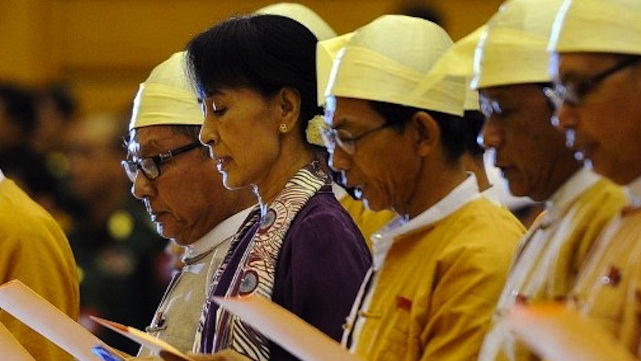
Aung San Suu Kyi was re-elected as Myanmar opposition leader at a landmark congress Sunday, March 10. Hundreds of opposition members gathered in Yangon for their first national conference — a display of political muscle that would have been unthinkable under the junta that jailed Suu Kyi for decades. The meeting highlights the challenges facing Suu Kyi’s National League for Democracy (NLD) including its lack of experience and it’s ageing ranks. But the party held back from a substantial revamp of its leadership, instead selecting older veteran party members to a core executive of 15 and unanimously reappointing Suu Kyi as chairwoman. “We have to seize the chance,” Suu Kyi urged the party as it gears up for what is expected to be a major victory if the 2015 vote is free and fair. The NLD faces the financial and political might of President Thein Sein’s Union Solidarity and Development Party (USDP), created by former generals who shed their uniforms to run for office in controversial elections held in 2010.
Read more on Rappler - War in Syria continues 2 years after Arab spring
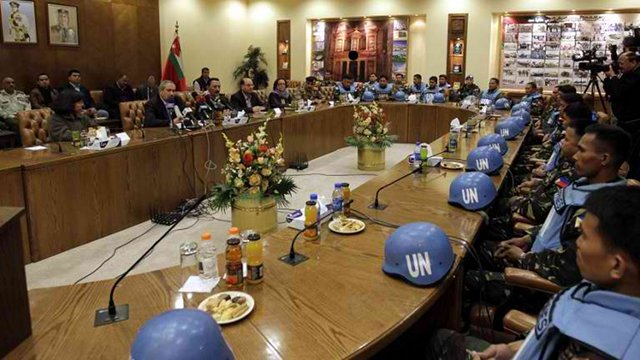
The Philippines welcomes the release of its 21 UN peacekeepers after they were freed by Syrian rebels. The members of a UN force monitoring a 1974 ceasefire between Syria and Israel were abducted on Wednesday, March 6. The abduction is a grim reminder that two years after the Arab spring brought hopes of democracy across the Middle East and North Africa, Syria is still mired in a devastating civil war. The conflict has killed more than 70,000 people, forced a million to flee with millions more displaced at home or missing, and an economic and humanitarian disaster. Rebels seized large swathes of territory, but growing tensions between moderates and powerful Islamists raise fears Syria could collapse in a new sectarian bloodbath. The United Nations said this week that “Syria is spiraling towards full-scale disaster.” And as hopes dim for peace, observers raise the alarm as the number of Syrian refugees, which just passed the million mark. UN High Commissioner for Refugees Antonio Guterres said Sunday, refugees could double or triple by the end of the year if the conflict does not end soon.
Read more on Rappler here, here and here - Can you tweet a revolution?

How important is social media in the Arab Spring uprisings?
An upcoming book by Philip Howard and colleagues argues digital media was “consistently one of the most important sufficient and necessary conditions” for the Arab Spring movements. Howard says new media made a difference because it “has so fundamentally changed the way people think about their options.” Earlier research concluded new media “did not appear to play a significant role” during the 2011 uprisings. But the 2012 study says social media posts could have led to “a boomerang effect that brought international pressure to bear on autocratic regimes.”
Read more on Rappler - Is Facebook ruining your life?

Almost everyone is on Facebook these days, but could it be ruining our lives? Rappler’s Chinie Diaz says the popular social networking site does have serious drawbacks. One, Facebook hurts productivity. The dopamine buzz users get from receiving comments and likes can be distracting and addictive. Two, Facebook makes us eat more than we should. A study says enhanced self-esteem can reduce self-control when making decisions, making the combination of hunger pangs and dopamine buzz from Facebook hard to resist.
And three, Facebook makes us feel less satisfied with our lives. The more you look into the lives of others via their Facebook updates, the less happy you feel about your own life.
Read more on her suggestions on how to deal with these problems. - Japan: 2 years after the tsunami
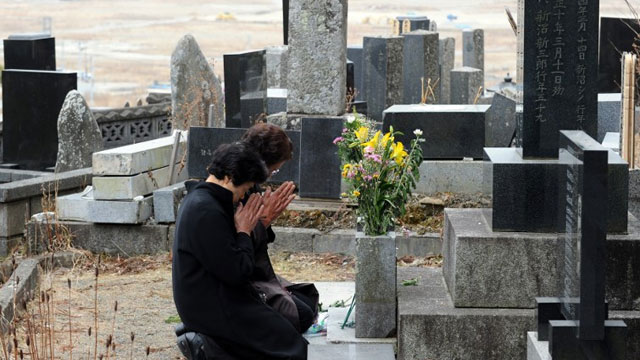
Japan on Monday marks the second anniversary of a deadly tsunami that killed nearly 19,000 and sparked the worst nuclear accident in a generation. In a national ceremony in Tokyo, the government will observe a moment of silence at 2:46 pm (0546 GMT), the moment a 9.0-magnitude earthquake struck on March 11, 2011. The quake triggered a killer tsunami that swallowed coastal communities and forced the Fukushima Daiichi nuclear plant to go through meltdowns. The government will need up to four decades to dismantle the crippled reactors despite reassurances the Fukushima plant is stable. Japan remains undecided over whether to continue using nuclear energy. Only two of its 50 commercial nuclear reactors have been restarted.
Read more on Rappler - Arrests, abuses and history in Sabah
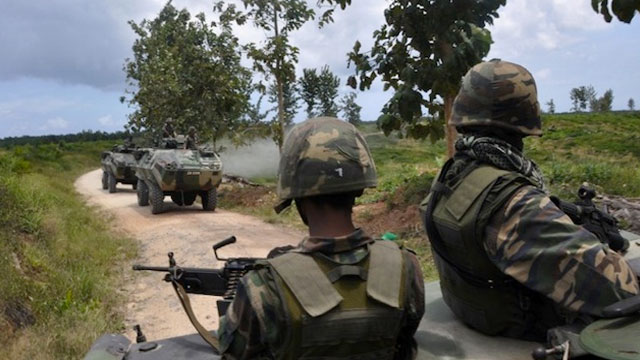
A month after more than 230 armed Filipinos arrived in Sabah to stake a historical claim, Malaysia moved in to deal with “the invaders” with superior firepower and troops. More than 60 are dead and at least 85 are arrested. Raja Muda Kiram, the group’s leader, escapes arrest while a Rappler investigation shows two men who were part of a covert military operation in the 1960s again joins this overt plot which ended in violence. The Philippines condemns the “inhumane treatment” by Malaysian security forces of Filipinos in Sabah. Malaysia denies the charge.
Read more about the escape and arrests, the plotters, and the charges of abuse – all on Rappler.
Add a comment
How does this make you feel?
There are no comments yet. Add your comment to start the conversation.